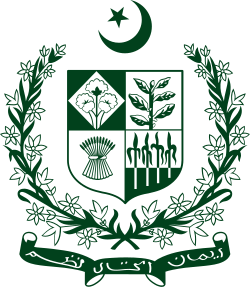This article relies largely or entirely on a single source .(June 2022) |
| Deputy Speaker of the National Assembly of Pakistan | |
|---|---|
 | |
since 1 March 2024 | |
| National Assembly of Pakistan | |
| Member of | National Assembly of Pakistan |
| Seat | Islamabad |
| Appointer | Elected by the National Assembly |
| Term length | As long as the current assembly remains in power, the Deputy Speaker continues to exercise its authority |
| Constituting instrument | Constitution of Pakistan, Article 53(3) Chapter 2 |
| First holder | Maulvi Tamizuddin Khan |
 |
|---|
The deputy speaker of the National Assembly of Pakistan presides over the assembly whenever the speaker is absent or unable to perform his or her duties. The office has its roots in 1947 when the Deputy Speaker was addressed as the Deputy President of the legislative assembly. After the ratification of the 1973 Constitution of Pakistan, the office was re-established. Currently, the position of Deputy Speaker is held by Ghulam Mustafa Shah who was elected by the National Assembly of Pakistan on 1 March 2024 along with the Speaker Ayaz Sadiq.



